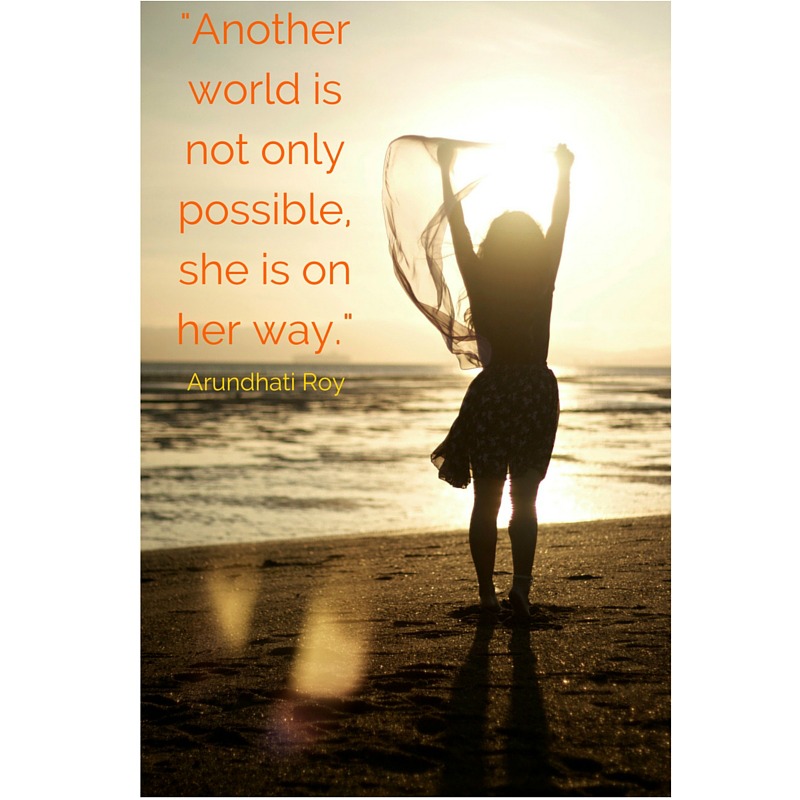This semester, I’ve been teaching a class that focuses on the American Dream. I start the semester by asking students what they think that dream consists of, specifically. They’re always surprised to discover that there’s some disagreement about this, which is the point of the exercise. Then we spend the rest of the semester looking at definitions and illustrations of the dream, trying to figure out what makes it possible for some people to achieve and impossible for others. By the end of the semester, my hope is that students have learned one thing: while hard work is always necessary to achieving your dreams, being lucky is far more important.
As young people, we’re told to work hard. Some of us also have someone in our lives who tells us that we can be and do anything we want. I had teachers who told me this, of course, but teachers say that to everyone; I didn’t really believe it, because I had parents who were the product of a different generation. More than once, my dad told me “People like us don’t _____.” (Fill in the blank with “go to medical school,” “go to that kind of university,” “become lawyers,” etc.) He wasn’t trying to be discouraging; he was trying to prepare me for the kind of world he thought I would be meeting when I struck out on my own.
But I got lucky: at the start of my senior year of high school, I met a friend who saved my life. Her name was Susan. I’d already dropped all my AP classes and decided that I wasn’t going to college; my plan was to become a secretary and “see if I really miss school.” Susan had grown up in family completely different from mine. Her father had been the governor’s press secretary, and her older brother was starting law school–there was no question that she would go to college. When I saw how excited she was about making that leap, I decided that maybe I’d follow her lead. I’d go to college, too.
Given that I’m now a professor, I don’t have to explain how important that decision was. And yes, I worked really hard to become a professor–no one earns a Ph.D. without working hard. But I’m pretty confident that I would never even have stumbled down that career path without Susan’s influence, and our friendship was nothing more than a happy accident. I was in need of one good friend to hang out with at school, and so was she. We sat next to each other in choir. Talking to each other in class a few times, we discovered that we had common interests. If any of those things had been different, the two of us might never have connected.
It’s really important to acknowledge the important role luck plays in our lives. As Robert H, Frank writes, “seeing ourselves as self-made—rather than as talented, hardworking, and lucky—leads us to be less generous and public-spirited. It may even make the lucky less likely to support the conditions (such as high-quality public infrastructure and education) that made their own success possible.”
In other words, if you don’t acknowledge your own good luck, you’re unlikely to help create the structures that allow it to benefit others.
In my American Dream class, we talk about this in connection to Willa Cather’s novel, O, Pioneers! It’s the sort of All-American Story students love: Woman inherits a failing farm from her father. Woman works hard. The farm is successful. The American Dream is achieved. The End.
But while the novel’s heroine, Alexandra Bergstrom, does indeed work hard for her success, I have to point out to my students that her dream is completely contingent on good luck. She’s fortunate to have a neighbor who tells her how to care for her hogs, so they don’t die and can be sold for slaughter. She’s lucky enough to be living in the Midwest at a time when farmers are abandoning their land in huge numbers, due to climate change, and to have the foresight to buy that land when it becomes available. Alexandra is a savvy businesswoman, to be sure–but she’s also just plain lucky. Right up until the moment that her luck runs out.
That’s another part of the story my students tend to skip over: if Alexandra is so deserving of all the good things that come to her, then why is her life nearly destroyed by tragedy? It’s not because she’s lazy. At least in part, it’s because she hasn’t been paying attention to the community around her. Alexandra admits this herself, saying she should have seen it coming. As the saying goes, we all have perfect hindsight–which, as Frank writes, can be described as “our tendency to think, after the fact, that an event was predictable even when it wasn’t.” Alexandra is no exception.
If you’ve been lucky enough to grow up in a developed country like the United States, if you’ve been lucky enough to afford (or borrow for) a college education or a small business–if you’ve worked really, really hard to make your life happen–then your success may seem deserved and predictable. But before you even had the chance to work hard, you got lucky. If you’d been born somewhere else–in Syria, for instance, which is being destroyed by civil war–then your willingness to work hard would amount to nothing, through no fault of your own.
It’s pretty easy to fall into the trap of patting ourselves on the back for a job well done, but I try to keep in mind those lucky accidents that have brought me to a place I couldn’t have imagined at 18, to a life that suits me better than any other could, probably. I wish I’d done a better job of maintaining my friendship with Susan during our college years, if only so I could tell her how very important she was in making me who I am today.
If you’re out there reading this somewhere, Suze: Thanks. You saved my life. And I’m just plain lucky that you did.




No Comments